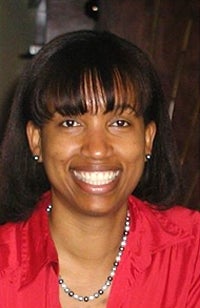Strength In Numbers | Job seekers network their way through recession
Framingham resident Marci Reynolds hasn’t always made networking a priority. Like many professionals, she’s been using LinkedIn for a while. But it wasn’t until March, when she was laid off from her job as vice president for North American sales operations at Monster.com, that she decided to put some serious energy into making connections.
“I really decided that the only way I’m going to get a job is through some new face-to-face contacts,” she said.
Since then, Reynolds has been trying out different networking groups every week—a speed networking event for Bentley College alumni, a gathering of the executive-level group ExecuNet, a Downtown Women’s Club chapter meeting and more.
Many newly out-of-work professionals are feeling their way through the world of networking. Almost everyone agrees that getting connected is the best way to get noticed in a rough job market, but it’s far from obvious what the best way to go about that is.
No Stone Unturned
Nicole LaGuerre of Acton did independent consulting in organizational development until business got too slow. She’s been looking for work for the last two years, but she’s still enthusiastic about building up a personal network of contacts.
“I’m a talker, so if I bump into someone I talk to them, I take their card,” she said.
LaGuerre said her contacts include friends, acquaintances she’s met while running errands and even people she met at job interviews: even when she hasn’t been offered a job, she’s made connections with interviewers and kept in touch.
That network helped her get 13 or 14 interviews and three job offers last year, LaGuerre said.
But with so many companies on shaky ground, none of the jobs worked out. Still, she said, she’s been able to pass on leads that weren’t perfect for her to friends in her field, and at least two of them got the jobs.
Despite her wide-ranging hunt for contacts, though, LaGuerre said she isn’t excited about networking groups that are specifically targeted to job seekers.
“I find it silly to get together on a Thursday evening, a bunch of people that don’t have jobs,” she said. “I think it’s more of a support group than anything else.”
But people without a broad range of contacts like LaGuerre’s may not have much choice about how to build a network.
Victoria Waterman, president of Leading Women Mass., which offers seminars for businesswomen in the state, said she’s seeing increased interest in networking both from happily employed women who need to build their business and from those who are suddenly unemployed.
“I hear from women who are caught without a job saying ‘I wish I had started this process a long time ago. I wish I had realized how important it is,’” she said.
Waterman said she’s offering workshops on creative ways to network, like golfing with potential contacts and serving on nonprofit boards.
“Volunteering for a nonprofit is a great way of networking, and it doesn’t cost you anything,” she said.
Even groups that really aren’t in the business of helping their members find jobs are feeling some pressure to take on that role.
Cynthia Skowyra, director of programs and events at the Worcester Regional Chamber of Commerce, said she always had a few unemployed people at her events, but now there are more of them, and they’re more vocal about looking for job leads.
That presents a bit of a dilemma, since the chamber’s events are generally aimed at businesses looking to sell their products to other businesses.
But Skowyra said she’s happy to welcome job seekers who have been active members in the past, and she hopes helping them out will lead to a better business community in the future.
“I think in an economy like this we’re doing whatever we can to support people,” she said.
Skowyra said she knows first-hand how important connections made through the chamber can be—that’s how she got her last four positions.
For Reynolds, face-to-face networking is crucial, but it’s just as important to combine it with online social networks.
After meeting people in person, she adds them to her LinkedIn contacts, and when she sees a job posting she checks her online network to see if she’s connected to anyone from the company.
“On LinkedIn you not only have access to the person you met but you have access to all of their contacts,” she said.
Using that combination of in-person and online networking, Reynolds said, she’s gotten six interviews in less than two months.
One promising lead came when she saw an online job posting and quickly called a contact she had met at a networking event.
“She e-mailed my resume directly to the CEO, and that afternoon HR called,” she said.











0 Comments